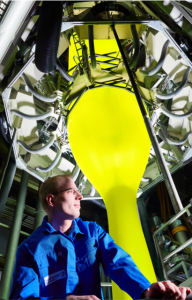
Introduced the concept of paperless masking to the UK market in 1989 with Wondermask Classic, the original and now much imitated paint absorbent
masking material. Subsequently developed into Wondermask Lite
The first material of its type that can be used on vehicles that are subject to damp conditions.
Since the introduction of the concept of polythene masking with Wondermask, the process has been widely accepted in the trade.
R&D policy now provides a number of masking choices to meet the needs of all bodyshops from premium to budget.
“a quality paint finish is founded on good masking preparation”
Wondermask was the first paint absorbent masking polythene. Prior to this it was necessary to use brown paper along with standard yellow polythene sheeting. A technical support and training facility formed part of the package.
Since it’s introduction Wondermask has revolutionised masking practices, and paperless masking is now the standard in most modern body repair facilities. It still remains the bench mark product in the sector.
This sea-change in masking practices and all the cost saving advantages it has brought, has not been helped by the inevitable introdution of many products, aimed at this market, produced and sold purely on price rather than on performance. This often means that operatives soon lack confidence in the product, as many are little better than tradional yellow polythene.
Bodyshop managers, under continuing pressures to reduce cost, may be tempted to use the low cost alternatives without considering that in terms of productivity “cheaper” products may be more costly because of the time it takes to mask a vehicle and other problems that can result in re-work.
Disclaimer: Wondermask, like all polythene should not be applied directly onto surface water. Standard quality procedures apply. No liability is accepted for any damage caused to vehicles as a result of incorrect use or as a result of the failure of other materials/equipment used in conjunction with the product.


